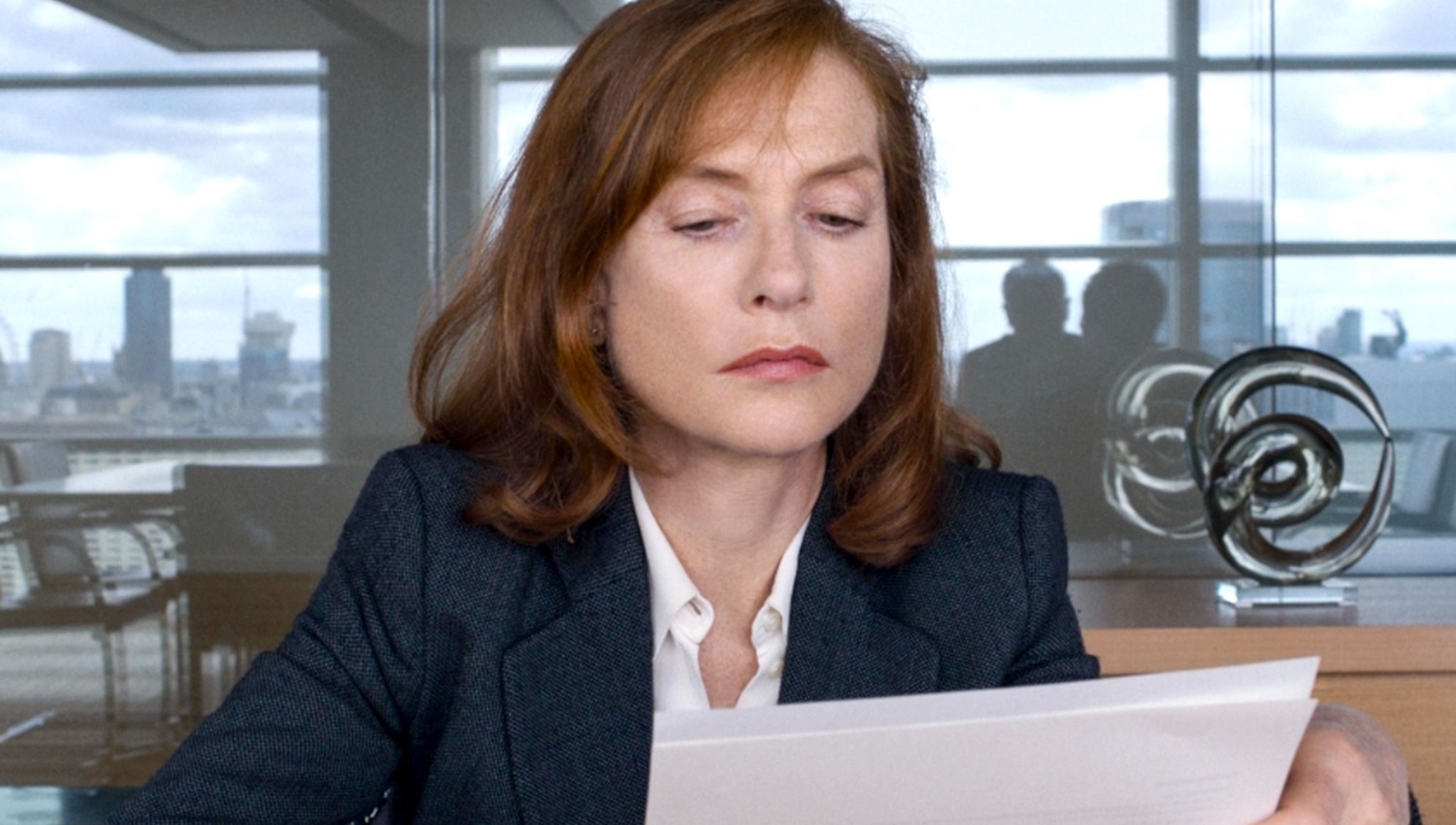
Happy End
Dustin Chase
It’s been five years since his Oscar nominated Amour, but acclaimed filmmaker Michael Haneke returns with Happy End. Starring his frequent collaborator, and last years best actress nominee Huppert, marking their fourth collaboration. The opening credits or prologue (Happy End’s version of Snap Chat) is nearly insufferable, as it reintroduces the audience to Haneke’s fascination with the mundane. The IMDB description for the film is as follows: “A drama about a family set in Calais with the European refugee crisis as the backdrop”. Yet the refugee’s have little to do with the story or the plot. Happy End could more accurately be compared to a European soap opera, only written and directed by one of Cannes favorites auteurs.
Eve Laurent (Harduin) was unhappy with the lack of attention and number of pills her mother was taking. Now that she’s in a comma, Eve is to live with her father Thomas (Kassovitz) at the family’s compound. Also living there, her wheelchair bound grandfather (Trintgnant), aunt Anne (Huppert) who now runs the family business and of course her stepmother. “I’m not used to having a daughter anymore,” Thomas excuses his lack of comfort in her time of need. Each member of the family has their own secret or pressing circumstance that keeps them withdrawn from full engagement. Eve very quickly discovers what her father is hiding and doesn’t think twice about bringing up the sensitive matter.
Reintroduces the audience to Haneke’s fascination with the mundane.
Back to the mundane, it’s Haneke’s crux to watch characters pack their suitcase, spying on them from afar as they brush their teeth or watch a dog bark repeatedly from the outside looking in. He has done this in all his films, as far back as when I first discovered him in the American remake of Funny Games. These long takes create a voyeuristic atmosphere, which might be fine if something interesting was happening. Visually, Happy End isn’t very interesting, mostly these characters move within indoor locations and have banal conversations.
Once the audience pieces together the many characters relationships to each other through increasing interaction, the story becomes a bit more interesting. The Laurent family is plagued by one tragedy after another, not that anyone shows any real emotion here, aside from Eve’s unconvincing crying scene in the car with her father. Huppert certainly doesn’t give much of a performance, none of the characters do, their parts are undernourished with detail and depth. The highlight of the film is a scene between the family’s patriarch and the granddaughter who are at opposite ends of life’s spectrum.
